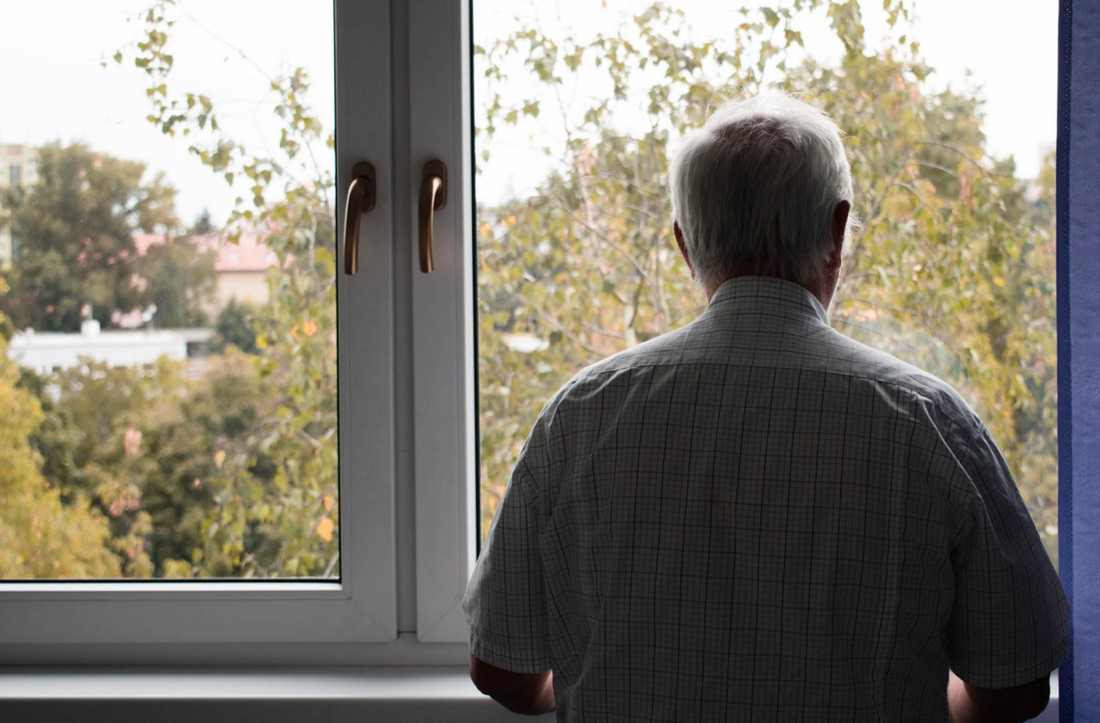THE end-of-life wishes of many older people were not sought or honoured during the pandemic, according to a new report from Irish NGOs.
The ‘Telling It Like It Is’ report states that older people expressed the heightened challenges they faced during the pandemic and called for a post-pandemic focus on regaining their positive role in society.
The report also found that there was a deep frustration of precious time lost which cannot be regained.
Manus O’Donnell from Falcarragh is a member of the Irish Senior Citizens Parliament, part of The Alliance of Age Sector NGOs which issued the report. The alliance is made up of Active Retirement Ireland, Age and Opportunity, ALONE, The Alzheimer Society of Ireland, Irish Hospice Foundation, The Irish Senior Citizens Parliament and Third Age.
Speaking to the Donegal News, Mr O’Donnell admitted that March 2020 changed their lives in ways they could not possibly have imagined.
“Our day-to-day routines came to a standstill as Covid-19 spread across our island and we entered a nationwide lockdown,” he recalled.
Telling It Like It Is puts the voices of older people at the heart of the matter and Mr O’Donnell spoke to many of his friends in Donegal for the report.
One of its findings was the impact “cocooning” had on mental and physical health.
“While we all appreciated the need to be safe and vigilant, the sudden restrictions took a toll on many of us. Being limited to the household for most of the day lead to decreased physical activity as we were asked to limit ourselves to our homes and gardens for exercise. While I am lucky in this regard, not all older people had a garden or area to exercise in.
“I know the very word ‘cocooning’ was absolutely hated by many, as they felt it portrayed older people as a “burden” rather than as fully active members of society. The language we use is so important and cocooning made many feel like children needing protection rather than adults who had lived through many hardships and lived to tell the tale,” he added.
The whole experience had a detrimental effect on physical and mental health.
“Up to this we were the people helping out. Many of my friends and I were involved in community activity and volunteering and that stopped for no other reason than our age. We felt like we had lost control of our own lives, causing great stress and anxiety,” he said.
Cocooning also had financial implications as older people were asked to stay at home which saw the cost of living rise.
“Spending more time at home, at the start of both stages of lockdowns, meant we had to pay more in terms of heating and energy. While there was an increase of €3.50 for weekly fuel allowance, this was not available to all pensioners.
“Perhaps one of the most upsetting aspects of the pandemic was the impact on older people living in care homes. Visits were prohibited, activities curtailed, and many were restricted to their rooms. So, for many their (care) home became more like an institution.
“When you think of people being released from hospital back into nursing homes at the outset of the pandemic, you realise how little coordination and communication was in place then…we need to remain at home for as long as possible and we need effective services to do so,” Mr O’Donnell said.
Two key asks emerging from the ‘Telling It Like It Is’ report are for better Government communications with older people and for better support structures for older people to ‘age in place’.
“In terms of communications, something that has stuck with me through life is an interview I once watched with Christy Browne. He said the greatest gift we have is communication and I believe if the Government would learn from that and begin to properly engage with us and then across the different departments we would be so much better off in terms of services. Much of the poor communication during the pandemic is just a continuation of poor engagement processes and a legacy of enacting policies without talking with us first. This must change.
“Ongoing failures to support people as they age have resulted in the exacerbation of existing issues such as income insecurity and the inability to age within your own home. For several years now, we have seen no increase in our state pensions to match the increases in costs of living, making affording increased home energy costs during the pandemic even more difficult.
“Allowances for home care packages have also been inadequate in terms of what they cover. Most people wish to stay in their own home for as long as possible and we need to include older people in any decision to make this possible as they know what is needed.
“While these issues are not new, the pandemic placed a spotlight on them and resolving these issues must be a high priority for this Government now with a senior politician championing this,” Manus O’Donnell added.
Receive quality journalism wherever you are, on any device. Keep up to date from the comfort of your own home with a digital subscription.
Any time | Any place | Anywhere










